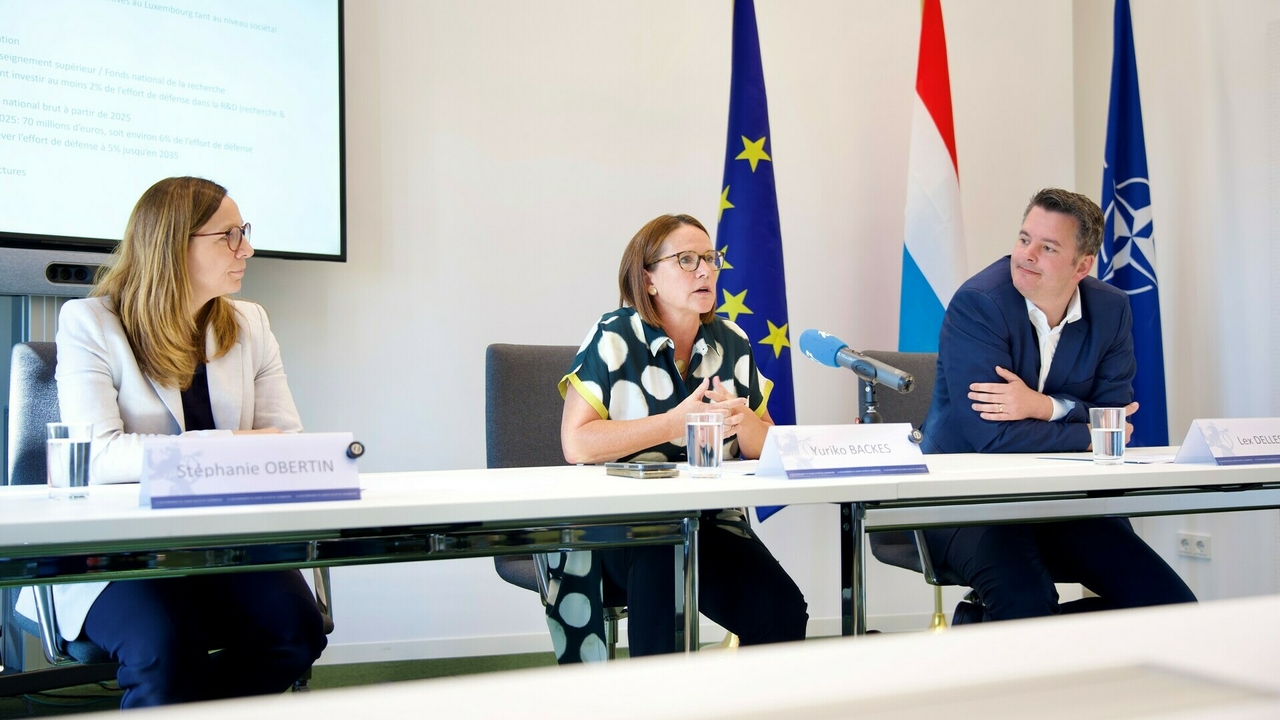Luxembourg has launched a €40 million defence innovation fund as it works to meet NATO spending targets while building domestic military-industrial capabilities, ministers announced Thursday.
The Luxembourg government has unveiled a €40 million defence innovation fund over three years to support projects aligning with NATO objectives while potentially benefiting the national economy.
On Thursday, Ministers Yuriko Backes (Defence), Lex Delles (Economy), and Stéphanie Obertin (Research) presented the third such tender since 2022 – marking the first exclusively targeting military-specific applications rather than dual-use technologies.
This latest funding round represents a strategic shift in Luxembourg’s defence investment approach. While previous initiatives focused on technologies with both civilian and military applications, the new tender specifically seeks defence sector innovations. Applications will be accepted through Luxinnovation from September to 12 December, with the National Research Fund (FNR) providing additional support.
“Luxembourg must develop homegrown capacity for both developing and manufacturing defence technologies”, Minister Obertin stated, emphasising the opportunity to redirect national research expertise toward security applications. The government aims to strategically position Luxembourg within European defence networks while fostering local industrial capabilities.
The funding breakdown allocates €11.25 million for 2025 alone, part of Luxembourg’s broader commitment to increase defence spending to 2% of gross national income (GNI) this year – a target announced in the State of the Nation Address. The Grand Duchy has also endorsed NATO’s 3.5% military spending goal by 2035, pledged during July’s summit in The Hague.
For a country with limited existing defence industry infrastructure, the initiative represents ambitious capacity-building. Luxembourg currently lacks significant arms manufacturing capabilities, requiring development of this industrial sector from the ground up. The programme also aligns with EU recommendations to dedicate at least 2% of national defence budgets to research and development.
